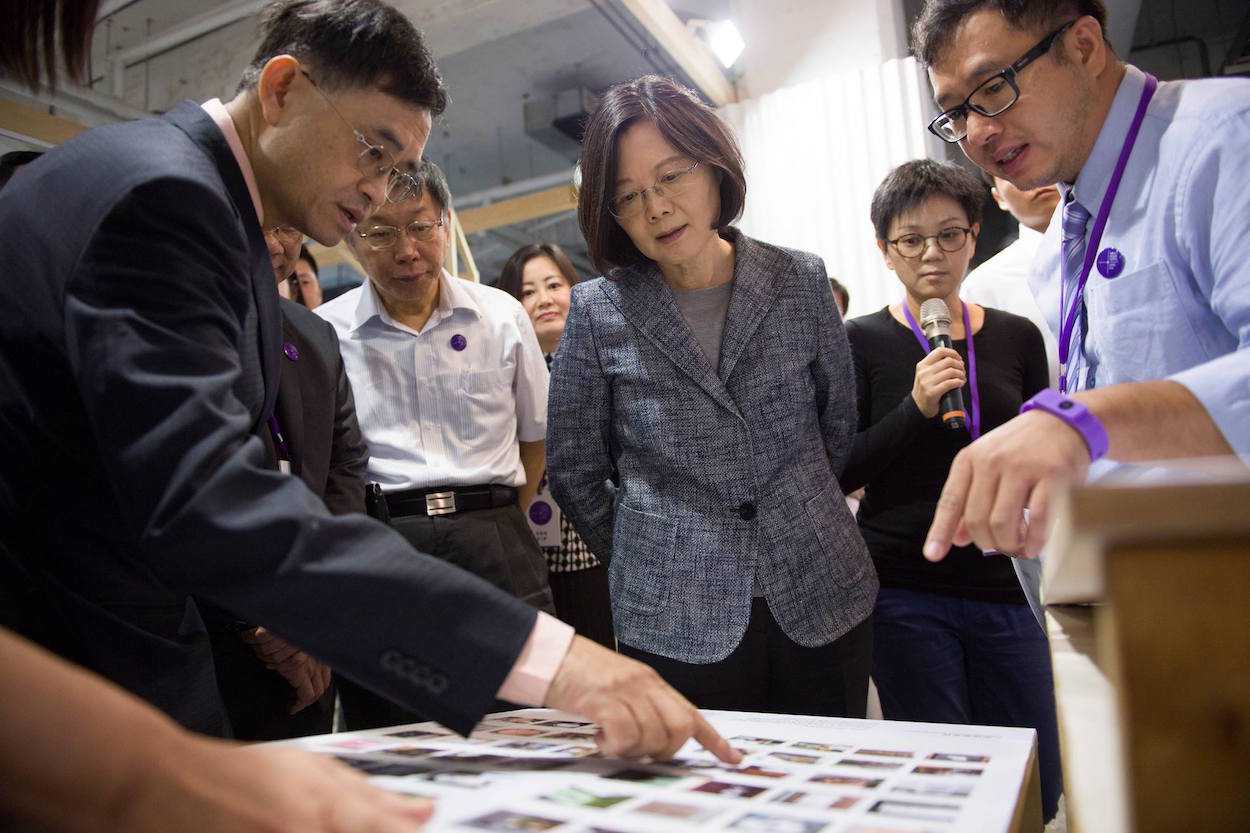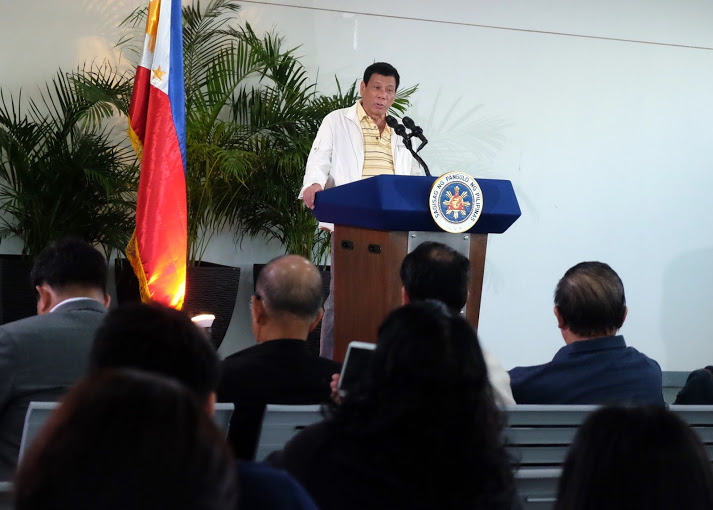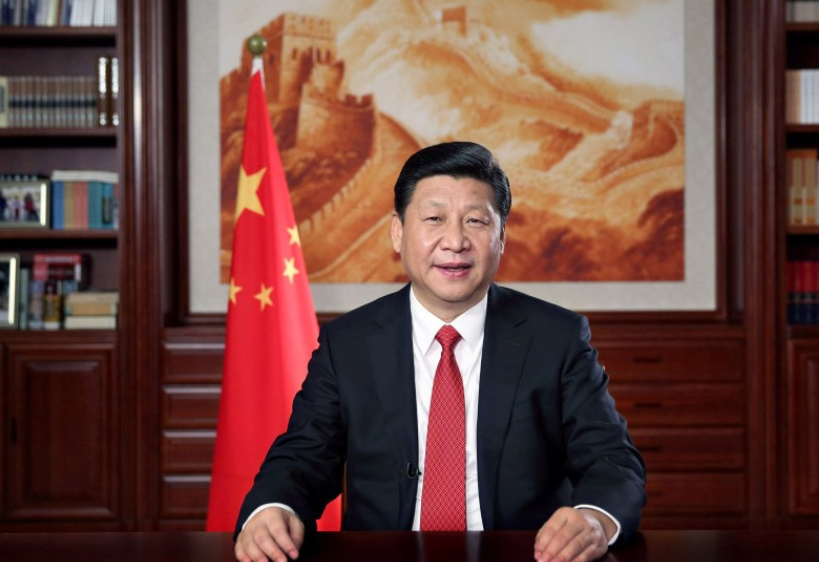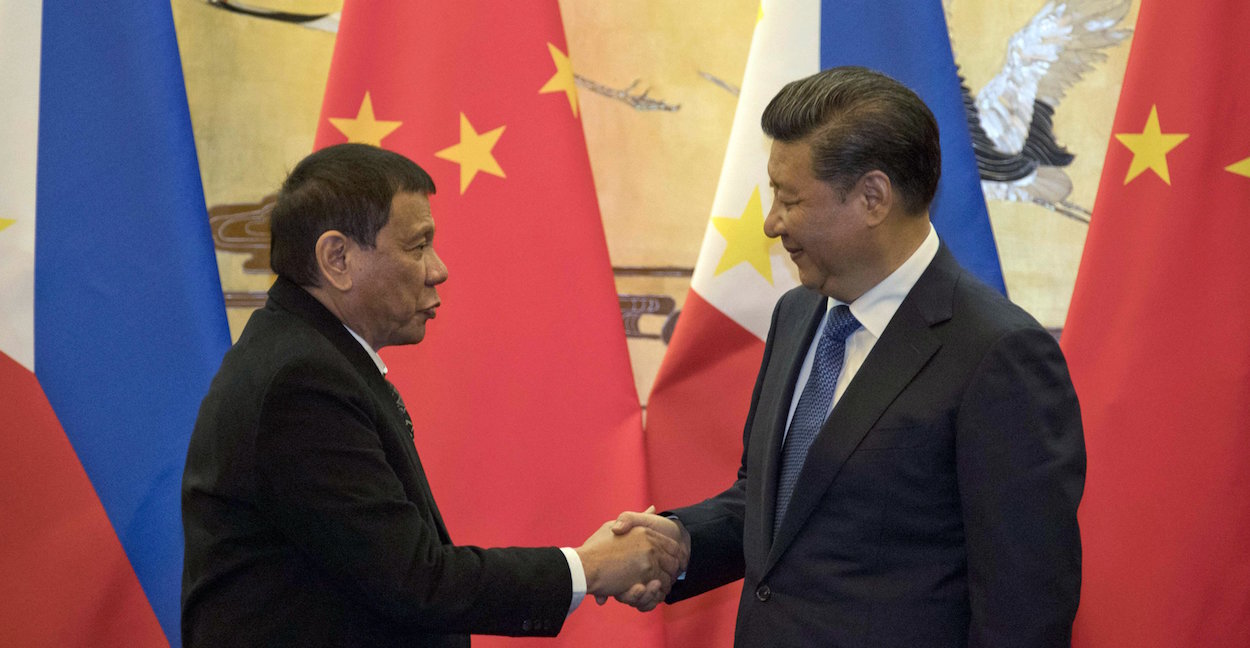by Garrett Dee
語言:
English
Photo Credit: Philippines Presidential Office/Public Domain
RODRIGO DUTERTE, the recently elected president of the Philippines, brought his brazen anti-American rhetoric to its logical conclusion this week with his proclamation before the People’s Congress in Beijing that he would be ending his country’s alliance with the United States and would be switching his partnership to China. Tensions had been mounting between the Philippines and the United States over the course of the last year as Duterte becomes increasingly vocal with his dissatisfaction with the Obama administration, going as far as to refer to the US president as a “son of a bitch” in a press conference this September, a remark which led to the cancellation of a meeting scheduled between the two heads of state in Laos later that month.
The schism between the two countries is due mostly to the strong US criticism of Duterte’s anti-drug campaign in which the Filipino president authorized police to kill suspected drug dealers and users on sight. Despite being extremely effective in mitigating the rampant drug abuse problem in the Philippines, the police violence led to the death of hundreds of people who did not receive any due process of law, some of whom are now confirmed to have been children. In addition, hundreds of protestors have also gathered in front of the US embassy in Manila to protest the continued presence of US troops in the country. The protestors were met with police resistance, and a police van slammed into the crowd of protestors and repeatedly ran over several people who were then taken to the hospital.
Duterte’s switch of allegiances over to China and his stated intent to ally with Russia against the United States will most certainly put an enormous amount of pressure on the Tsai administration in Taiwan. As Tsai sees her New Southbound Policy becoming increasingly bogged down by obstacles, Tsai will most certainly cringe at the prospect of any Southeast Asian country openly declaring its intention to pursue friendly relations with China. Though the countries are still culturally linked in part due to the large amount of immigration of Filipinos into Taiwan, economic relations between Taiwan and the Philippines that Tsai might have hoped to revitalize under her new policy have stagnated over the past several years. Data from the Taipei Economic and Cultural Office in the Philippines shows a steady decrease in both Taiwanese exports to the Philippines and Filipino exports to Taiwan, even as the Filipino economy has grown at a relatively stable rate.
 Tsai Ing-Wen. Photo credit: Presidential Office
Tsai Ing-Wen. Photo credit: Presidential Office
The Tsai government is also not completely innocent concerning the issue of extrajudicial killings in the Philippines in any case. As the Philippines has been one of the key targets of the administration in fulfilling the embattled New Southbound Policy, the Tsai administration had gone to great lengths to try to get closer to the new Duterte government, including going as far as to suggest that they condone the policies of the Duterte administration’s scorched earth anti-drug campaign. In fact, the Taiwanese representative to the Philippines Lin Song-huann stated in June that the Philippines would be the most important Taiwanese partner in the ASEAN region, and that Taiwan would “continue to work with your [Duterte’s] government to combat cross-border crime, drugs and human trafficking”. In retrospect, it is apparent that the Taiwanese government has severely misinterpreted the intentions of the Filipino government in regards to regional alliances.
The shifting allegiances of the Philippines to the PRC may thus cause a geopolitical crisis in the region that leaves Taiwan more vulnerable to Chinese machinations. Taiwan has long and openly relied on US military support as one of the cornerstones of its foreign policy, particularly in an era where the more pro-independence leaning DPP holds the governing mandate. The Obama administration’s “pivot to Asia” has not borne much fruit, and a strong US ally openly leaving the United States’ fold in favor of China in the last remaining months of Obama’s presidency is an enormous stain on his foreign policy record and bodes ill for future US prospects in the Pacific region.
Duterte’s changing of allegiance comes as even more of a slap in the face seeing as it was the Philippines which initiated the tribunal case at the Permanent Court of Arbitration in the Hague which led to the July ruling that invalidated China’s claims to the islands in the South China Sea, an action largely view as being instigated by the US government. In doing so, the Court also invalidated Taiwan’s claims to the waters surrounding the Taiping Islands, which prompted Tsai to move up the schedule of a regular navy patrol by one day in order to reassert her governments claims to the island. This angered some in Taiwan who felt as though the US had used the Filipino-driven arbitration to advance its own agenda and throw Taiwan under the bus. Duterte has now suggested that the ruling is nothing more than “a piece of paper” that will not be respected by the Philippines.
 Rodrigo Duterte. Photo credit: Public Domain
Rodrigo Duterte. Photo credit: Public Domain
For his part, Duterte is starry-eyed about the prospects of bringing the Philippines into China’s sphere and the prospects of Chinese investment in the Filipino economy, evidenced by the veritable army of Filipino businessmen he brought in tow with him to China, where many agreements were signed in various economic areas related to trade and investment. Indeed, the Philippines had been suffering under a Chinese boycott of Filipino fruits as a result of the Hague ruling against them, something that the Chinese government seems willing to end in the wake of Duterte’s announcement of an alliance between the two countries.
Duterte may also have yolked the future of the Philippines to the support of the PRC for more personal reasons as well; he was quite vocal about the fact that his grandfather was from Xiamen, even going as far as to declare himself Chinese. Duterte is also the Philippines’ first Mindanaoan president, Mindanao having experienced violence at the hands of American soldiers during the colonial period, which may partly inform his anti-US sentiment. His opposition to the United States extends over the course of an entire lifetime and has been well documented. Additionally, Duterte has fumed over criticism from the United States and other international organizations about his controversial war on drugs which has left over 700 Filipinos dead since Duterte took office, including innocent civilians and children, whom Duterte has claimed are “collateral damage”.
On the other hand, China has praised Duterte’s actions since he took office, with a spokeswoman from the Chinese foreign ministry going as far as to say that China “appreciates President Duterte’s efforts” in combatting his country’s drug problem with force and that the Filipino president has his country’s best interest in mind. Beijing may have several goals in mind as it attempts to bring the Philippines into its sphere of influence. First of all, the loss of a major ally in the region for the US will tip the balance of power slightly in China’s direction, especially if US troops find themselves kicked out of the Philippines. A downgrading of US naval power in the region will make it easier for the PRC to reinforce its claims in the South China Sea.
 Xi Jinping. Photo credit: Public Domain
Xi Jinping. Photo credit: Public Domain
Secondly, China may be seeking to export its model of human rights abroad, and Duterte seems willing to accept the ideology that individual liberties and privileges are subsumed by what the state deems as the greater good. Duterte has made no secret of his disdain for the US-exported neoliberal views of human rights, citing the fact that he governs a sovereign country and answers to no other foreign power. Indeed, Washington often attaches certain preconditions on human rights before providing economic assistance to developing nations and has used this ideology to justify many of its foreign policy blunders. Beijing has presented itself as a foil to this strategy and has displayed a willingness to cooperate with authoritarian regimes without demanding that they play nice, evidenced by its close relationships with several authoritarian governments in Africa and Southeast Asia who have a long history of human rights abuses.
Duterte has proclaimed that he was no longer content to be the United States’ “little brown brother”, and that his government will not become a Washington puppet. However, in allying his country with Beijing, Duterte may have merely traded one calculating superpower for another. Beijing had been avoiding the construction of military bases on the disputed Scarborough Shoal in an effort to entice the Philippines, but now that it has their declared support, it is unlikely that the Chinese government is going to yield sovereignty over the waters to Manila. Mostly likely, it will offer some sort of placebo in the form of fishing rights to the Philippines which will be little different from what they currently enjoy while solidifying its claim to the disputed waters and using Manila as a counter balance against Washington with its eye towards Taiwan. While refraining from intervening in internal Filipino affairs, Beijing will indubitably expect the Philippines to fall in line with China’s larger strategic goals of territorial expansion and resource accumulation as a precondition to any kind of investment.
Duterte notably walked back on his claims upon his return to the Philippines, stating that his statement reflected a “separation of foreign policy” rather than “a severance of ties” with the United States. This retraction of his strong claims that it would be China, Russia, and the Philippines “against the world” most likely reflects serious opposition to his unilateral action amongst his domestic political rivals as well as the more than 2.6 million Filipinos living in the United States, whom he mentioned in his address. Given the comprehensive defense and economic treaty entanglement between the United States and the Philippines, it is likely that Duterte realized the infeasibility of a sudden disavowal of the longterm alliance. However, the political fallout for Duterte at home and abroad will most likely not abate, and his gambit may unfortunately put the Philippines at risk of political and economic isolation.
 Duterte (left) and Xi (right) shaking hands. Photo credit: AP
Duterte (left) and Xi (right) shaking hands. Photo credit: AP
It is of absolute importance that US military interventionism and the heavy density of US military bases in East and Southeast Asia be ended. It is also true that Durtete is a democratically elected president and that the protests happening right now in the Philippines in opposition to US military presence need to be heeded. Nor should police violence against protestors should not be tolerated. However, when taken into consideration purely on its own merits, Duterte’s policy of extrajudicial police killings, irrespective of its degree of effectiveness in ending drug trafficking, is a human rights violation that has led to the unjustified slaughter of innocent Filipinos, and the PRC’s declared support of it is troubling. Furthermore, Duterte’s zero-sum game of abruptly ending relations with a strong diplomatic ally and throwing his lot in with a country with whom the Philippines currently has territorial disputes destabilizes the entire region. Given incidents like the massacre at Mindanao during the colonial period and other historical and modern grievances with the United States, their former colonial occupiers, the Filipino people are completely justified in demanding an end to US military presence in their country but Duterte’s method of conducting diplomacy is reckless and injudicious and puts his country at risk of harm.
All of this presents a serious dilemma for Taiwan. Although elected under a mandate of steering Taiwan farther away from China’s growing influence, President Tsai finds her charted foreign policy course already in the midst of a growing geopolitical hurricane with her first few months in office. Her inability so far to get her Southbound Policy off the ground coupled with the decline in revenue from the Chinese tourism industry, as well as the specter of the KMT launching their own shadow government in dealing with the PRC, has caused a souring of public opinion towards her administration. Manila surreptitiously allying with Beijing only compounds this. If Duterte’s proclamation that “America has lost” indeed starts to become a reality in the Pacific, Tsai can no longer count on American intervention to be her ace in the hole vis-a-vis Beijing.

